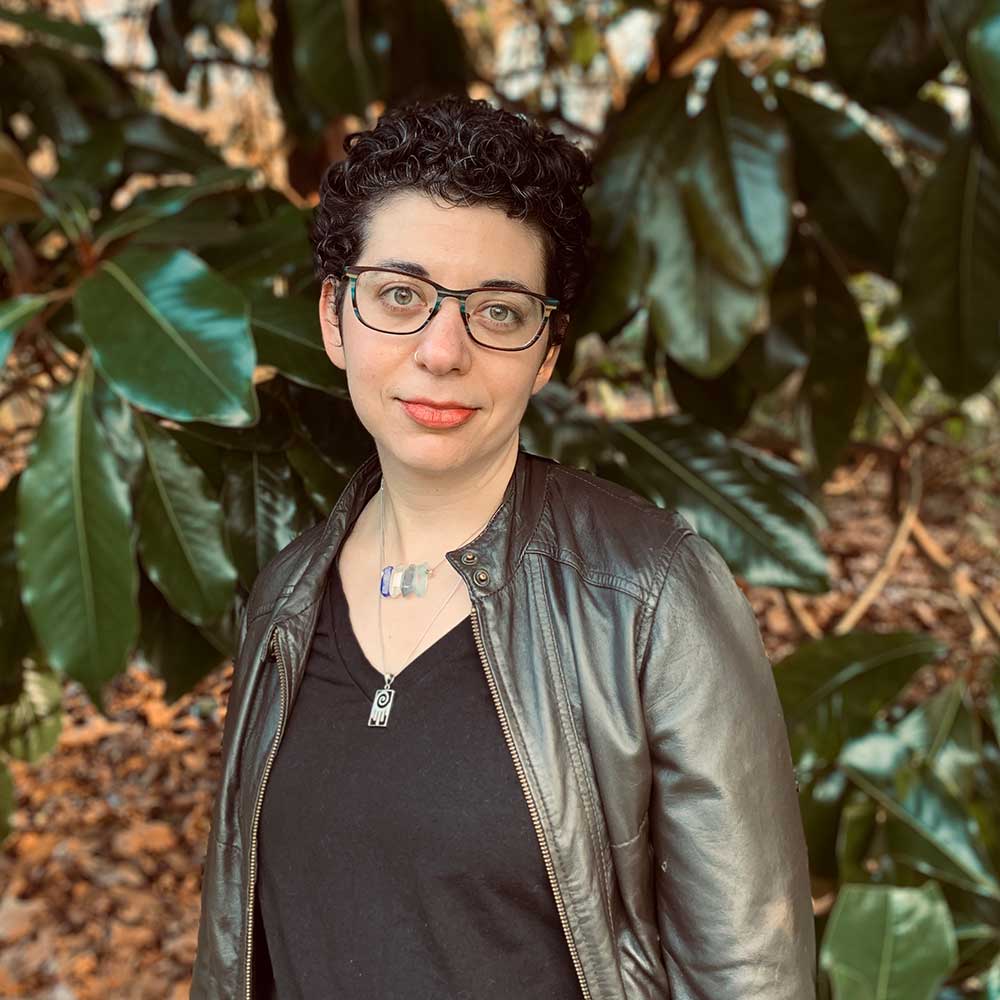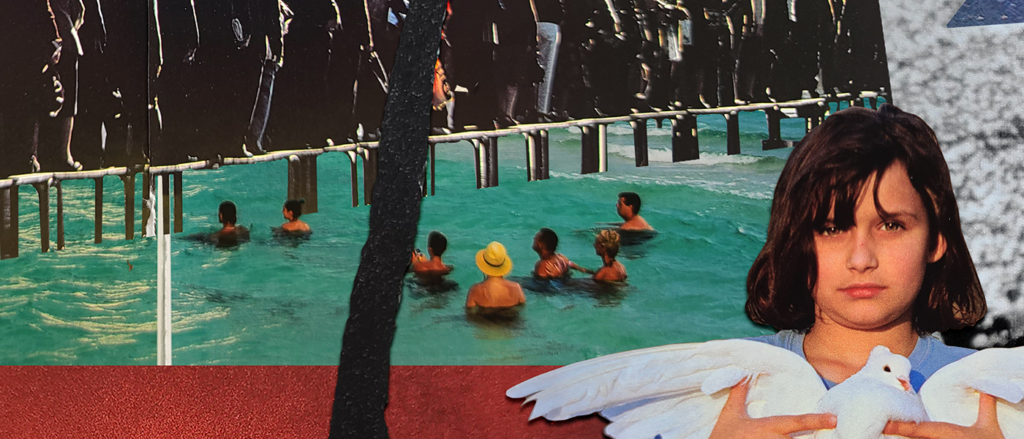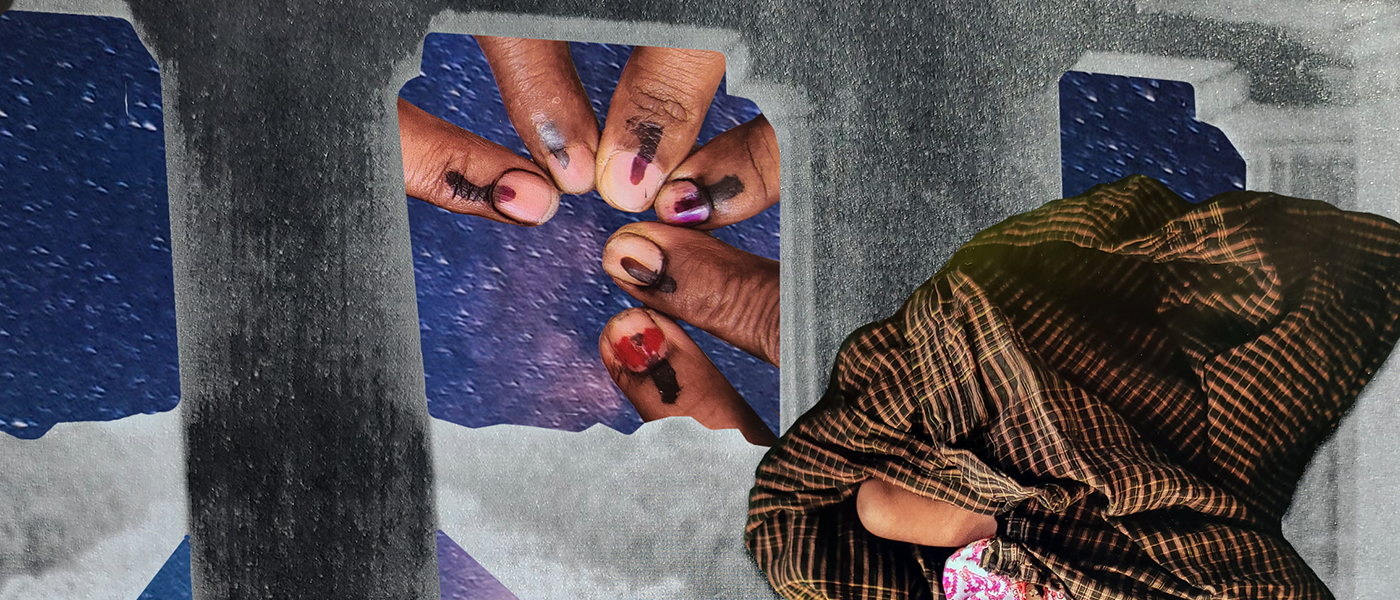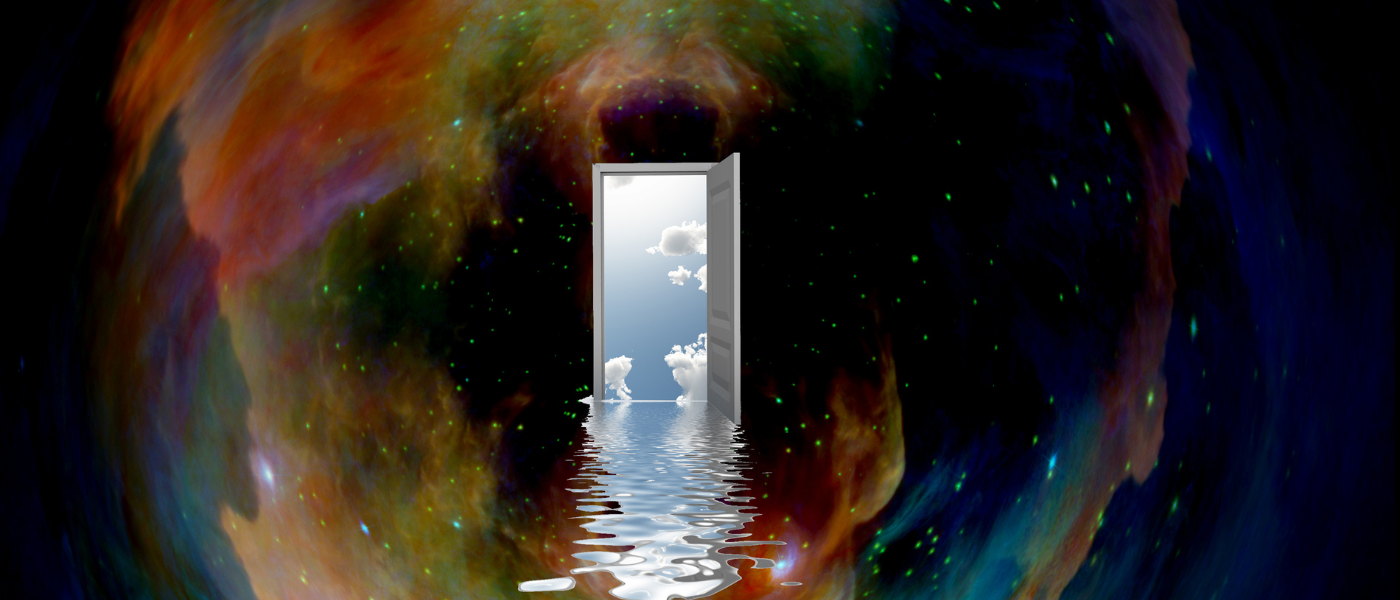Dear Memphis,
Do you get jealous?
Here, I walk
sweatless in the sunlight
and no one tries
to fry an egg on the sidewalk.
I had a good excuse
to visit, but the country
fell through.
The country where I am
is the country I abandoned:
same cracked concrete,
same magnolias.
At the edge
of my neighbor’s garden,
I tipped
my face into her white flower,
her petals a palm
atop the layers
of cotton on my cheeks.
Each broad finger a shelter.
Dear Memphis,
I still like my hair pulled.
Since I lost the length,
I scratch along my scalp
to get a grip.
I used to cling
to my breakfast chair
while rubber teeth ripped
through my curls.
Broken strands floated
down to linoleum;
hands trained not to let go.
Still, I stiffen
my neck. A net knots
around a wish
to be smoothed into place.
Minnie must’ve swept
my hair off the floor.
Once, my mother squeezed my shoulders
while she held
the smoldering end of a match
to my scalp,
but the tick had already fled.
So many hours
buffing our fingerprints
out of the polished wood
I’d sometimes sit
for her to braid my hair,
her touch so light
I couldn’t tell she’d finished.
Dear Memphis,
Today in the heat my eyes swam
as if through a chlorinated green.
My legs lagged,
sticky like the seatbelt
my second brother jabbed
while we bickered
over whose sweat dripped on whom.
Even the pool water
stuck like skin.
Three brothers and I walked
thousands of strides from the locker room,
our bare feet
calloused chalk-white.
One August day
the lifeguards lowered a block of ice
into the deep end,
the great buoy risen
effortless above the sixteen-ft mark.
I watched
other kids chase and touch
below the roped-off
springboard.
You couldn’t bring guests.




